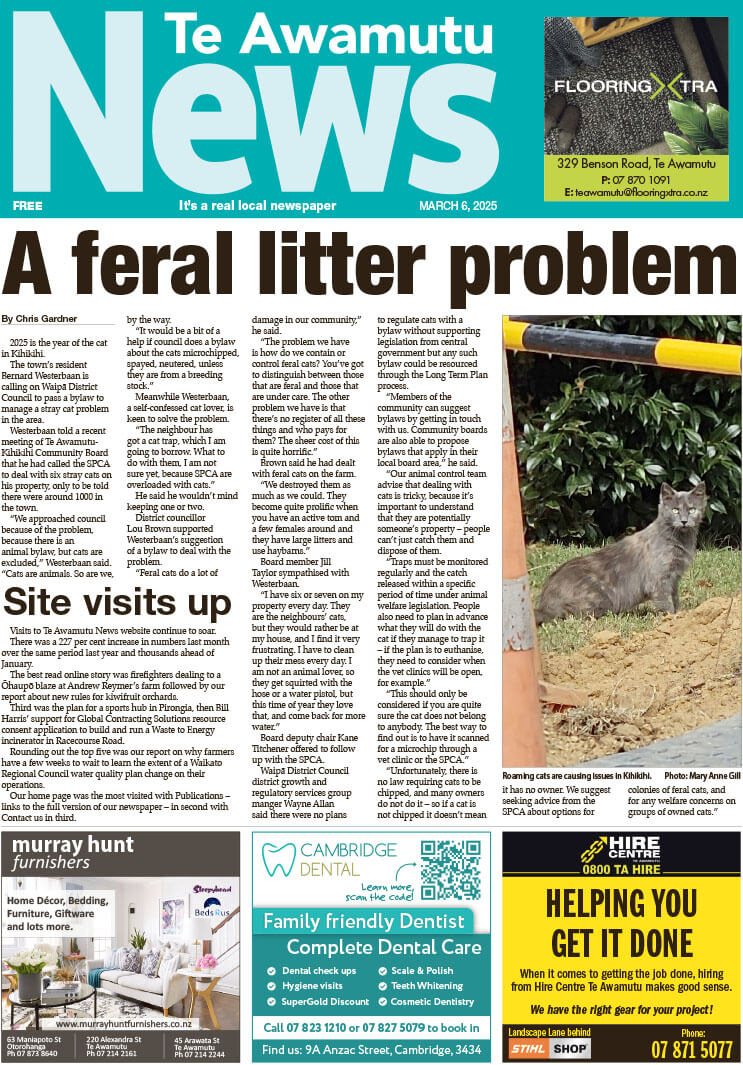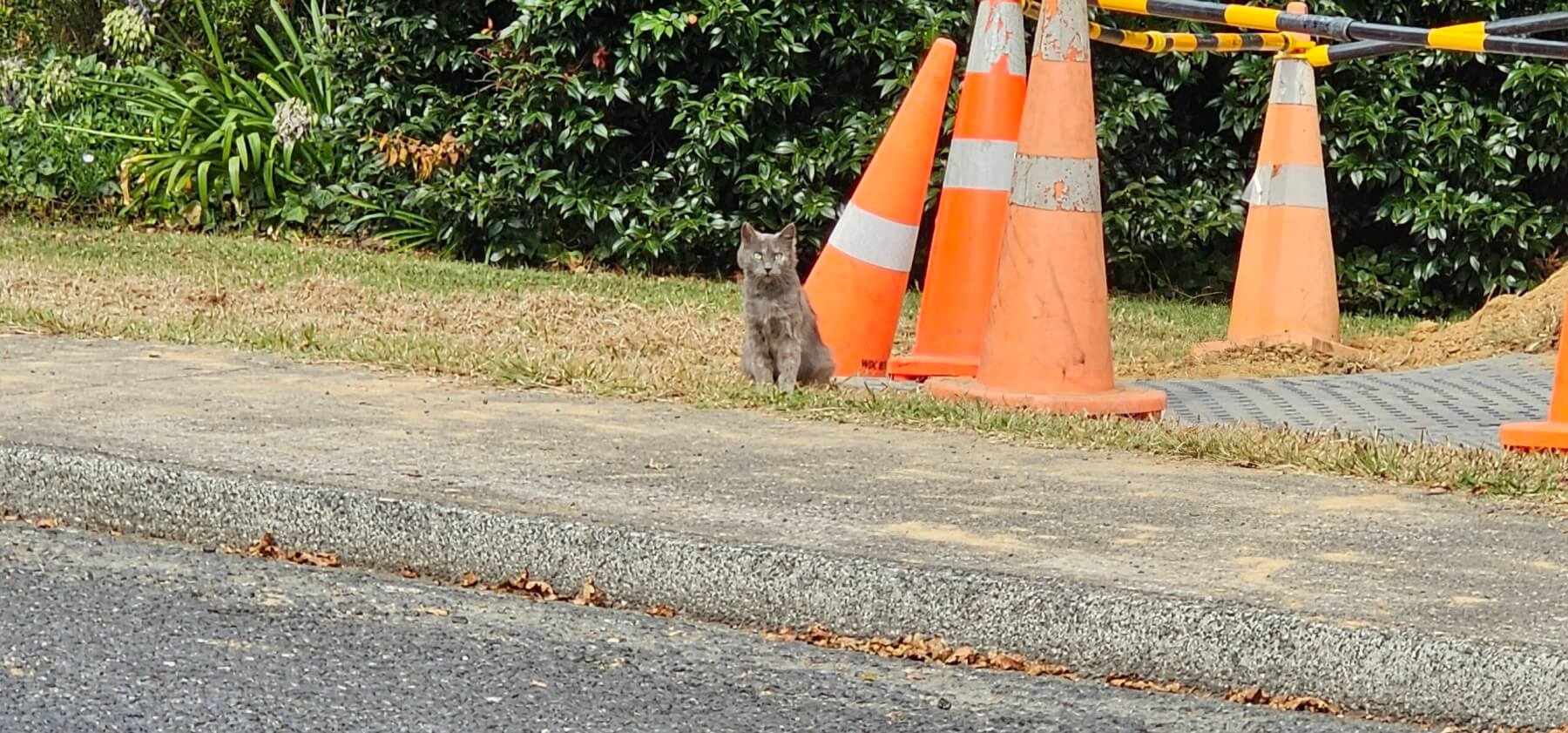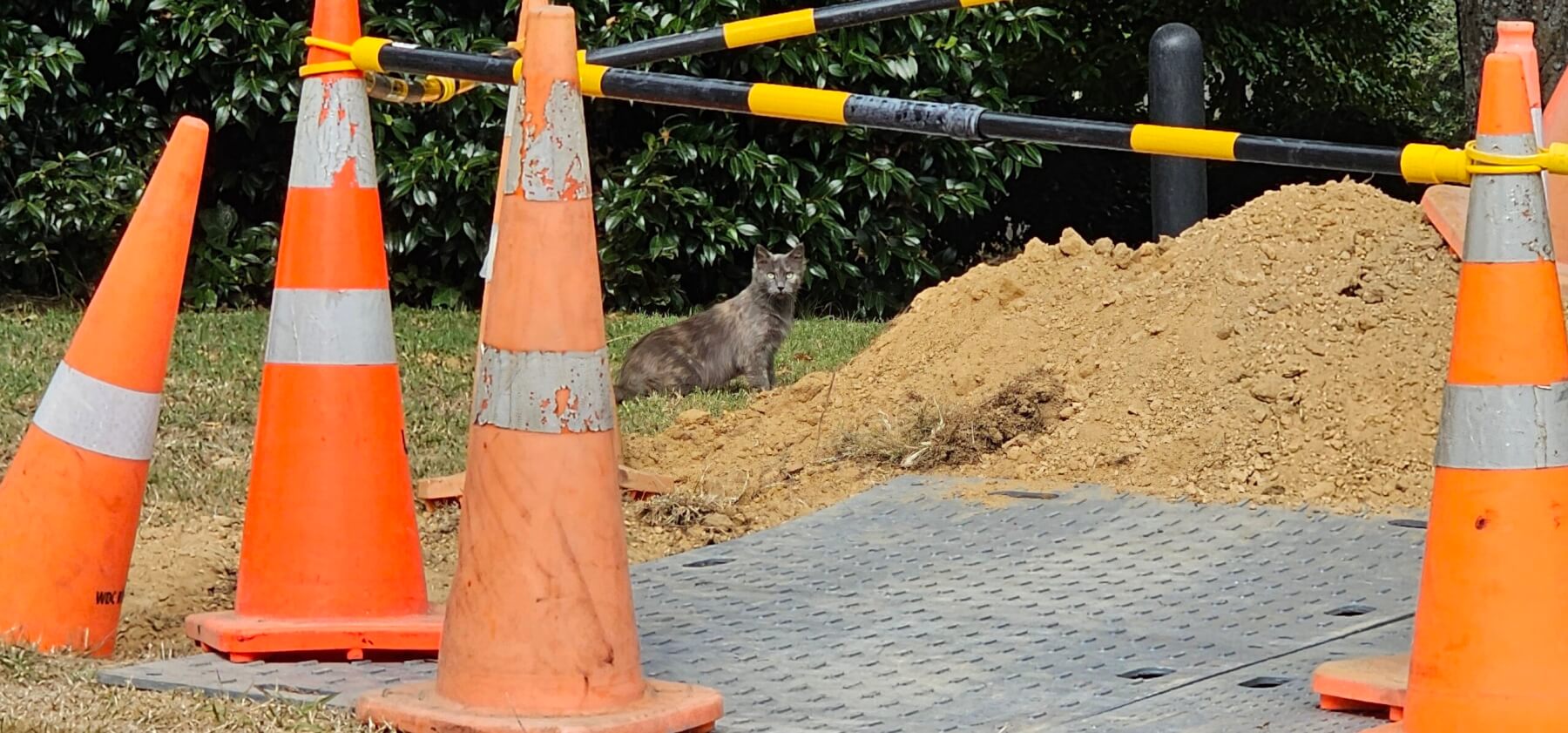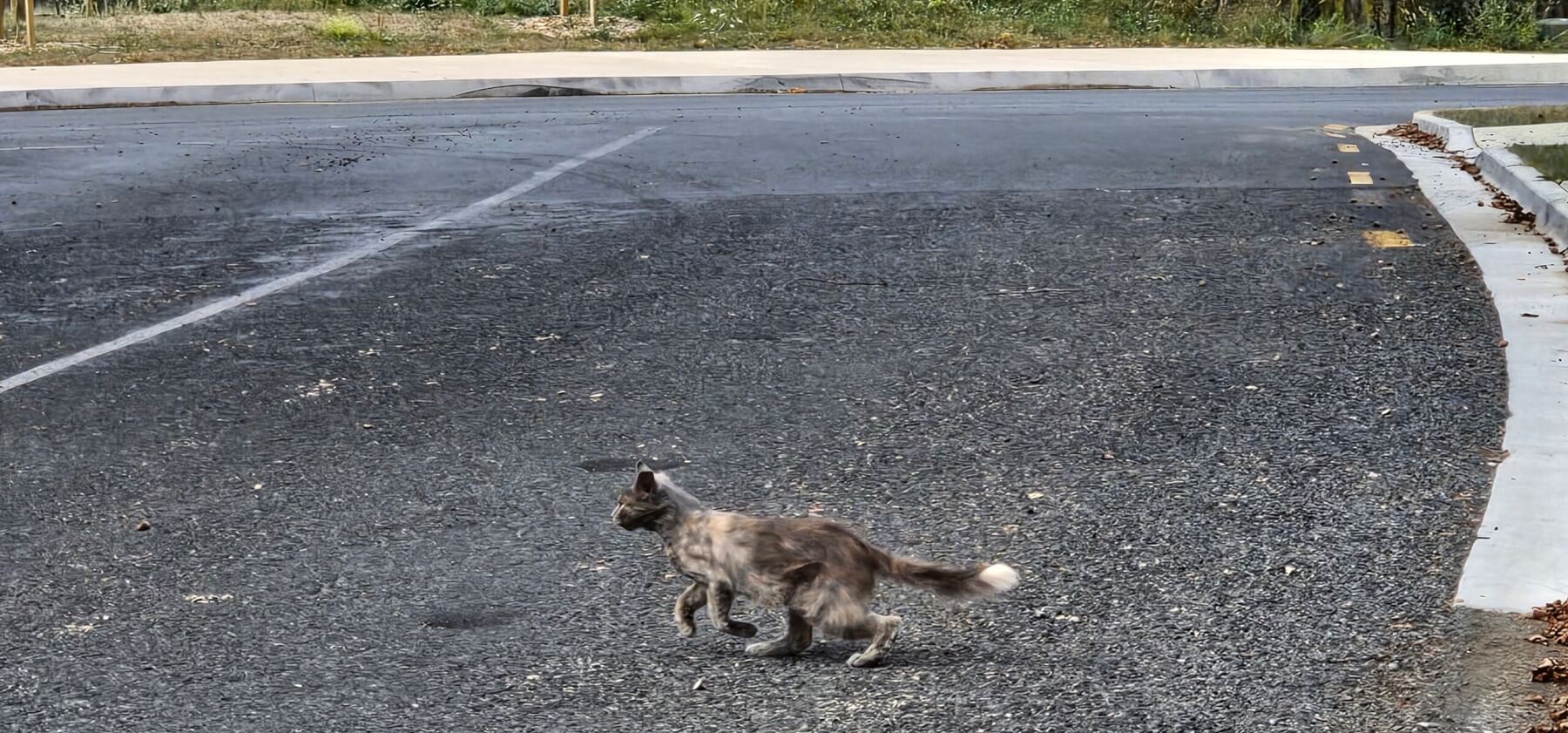2025 is the year of the cat in Kihikihi.
The town’s resident Bernard Westerbaan is calling on Waipā District Council to pass a bylaw to manage a stray cat problem in the area.
Westerbaan told a recent meeting of Te Awamutu-Kihikihi Community Board that he had called the SPCA to deal with six stray cats on his property, only to be told there were around 1000 in the town.

Te Awamutu News 6 March 2025
“We approached council because of the problem, because there is an animal bylaw, but cats are excluded,” Westerbaan said. “Cats are animals. So are we, by the way.
“It would be a bit of a help if council does a bylaw about the cats microchipped, spayed, neutered, unless they are from a breeding stock.”
Meanwhile Westerbaan, a self-confessed cat lover, is keen to solve the problem.
“The neighbour has got a cat trap, which I am going to borrow. What to do with them, I am not sure yet, because SPCA are overloaded with cats.”
He said he wouldn’t mind keeping one or two.
District councillor Lou Brown supported Westerbaan’s suggestion of a bylaw to deal with the problem.
“Feral cats do a lot of damage in our community,” he said.
“The problem we have is how do we contain or control feral cats? You’ve got to distinguish between those that are feral and those that are under care. The other problem we have is that there’s no register of all these things and who pays for them? The sheer cost of this is quite horrific.”
Brown said he had dealt with feral cats on the farm.
“We destroyed them as much as we could. They become quite prolific when you have an active tom and a few females around and they have large litters and use haybarns.”
Board member Jill Taylor sympathised with Westerbaan.
“I have six or seven on my property every day. They are the neighbours’ cats, but they would rather be at my house, and I find it very frustrating. I have to clean up their mess every day. I am not an animal lover, so they get squirted with the hose or a water pistol, but this time of year they love that, and come back for more water.”
Board deputy chair Kane Titchener offered to follow up with the SPCA.
Waipā District Council district growth and regulatory services group manger Wayne Allan said there were no plans to regulate cats with a bylaw without supporting legislation from central government but any such bylaw could be resourced through the Long Term Plan process.
“Members of the community can suggest bylaws by getting in touch with us. Community boards are also able to propose bylaws that apply in their local board area,” he said.
“Our animal control team advise that dealing with cats is tricky, because it’s important to understand that they are potentially someone’s property – people can’t just catch them and dispose of them.
“Traps must be monitored regularly and the catch released within a specific period of time under animal welfare legislation. People also need to plan in advance what they will do with the cat if they manage to trap it – if the plan is to euthanise, they need to consider when the vet clinics will be open, for example.”
“This should only be considered if you are quite sure the cat does not belong to anybody. The best way to find out is to have it scanned for a microchip through a vet clinic or the SPCA.”
“Unfortunately, there is no law requiring cats to be chipped, and many owners do not do it – so if a cat is not chipped it doesn’t mean it has no owner. We suggest seeking advice from the SPCA about options for colonies of feral cats, and for any welfare concerns on groups of owned cats.”











